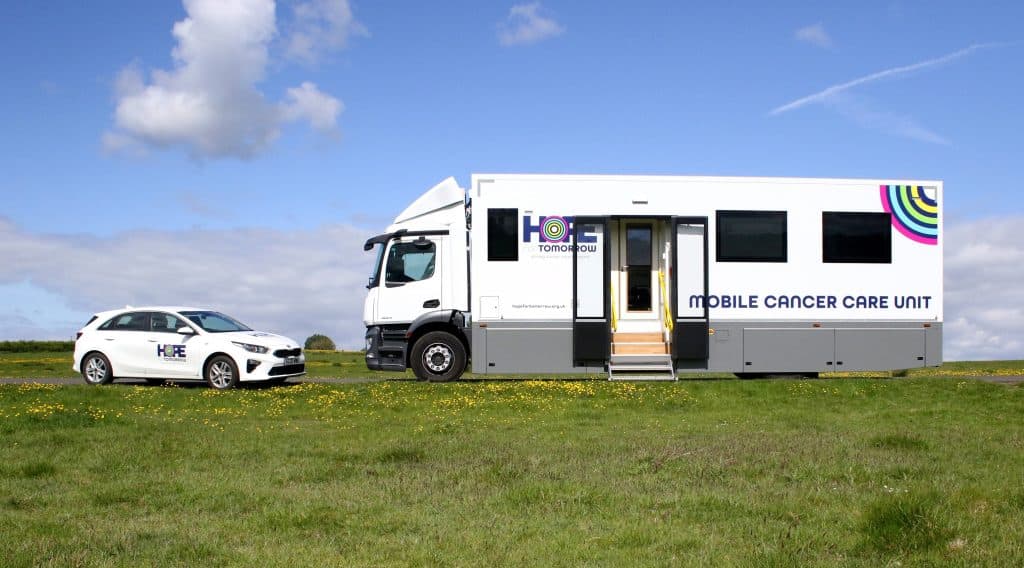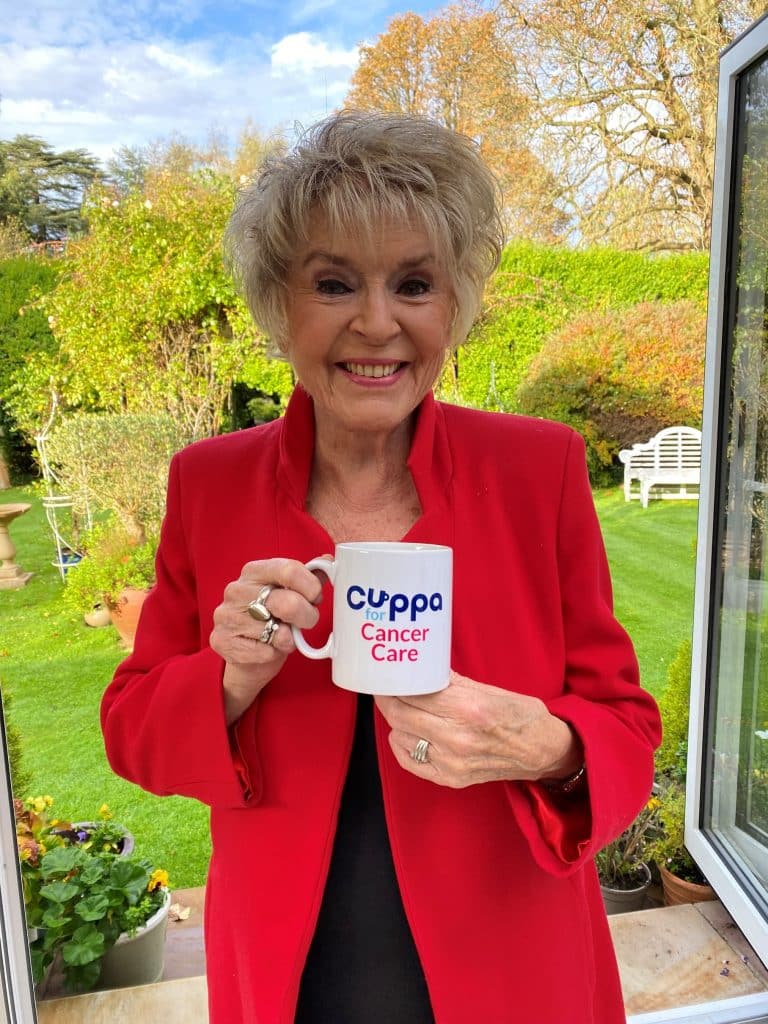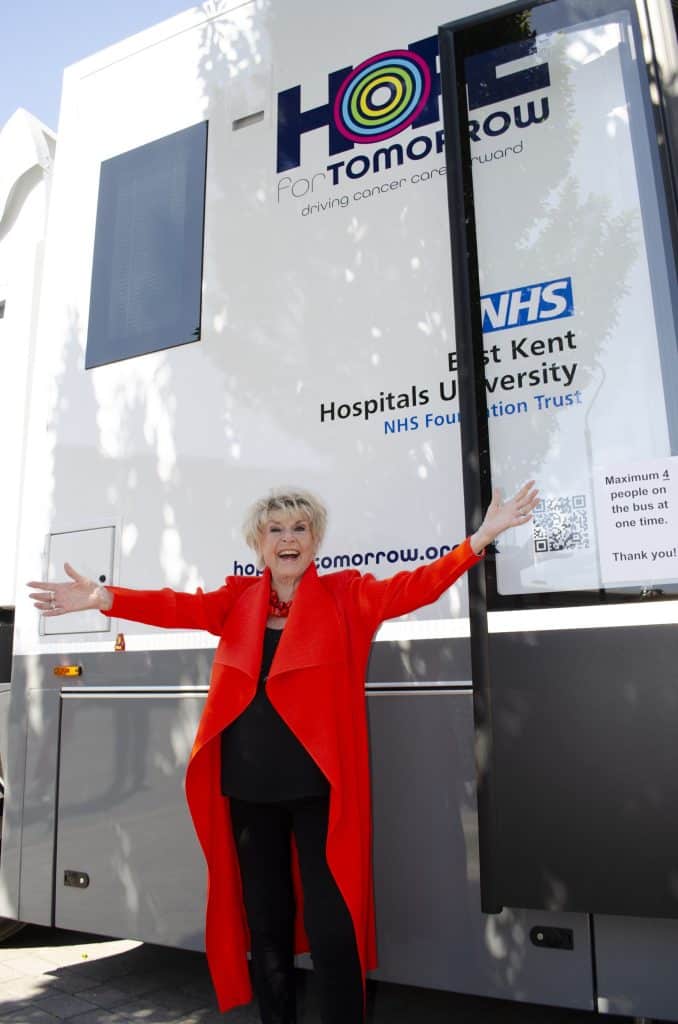Gloria Hunniford is heading up a campaign to promote the delivery of localised NHS cancer treatment with the use of mobile cancer care units. Gloria lost her daughter, Caron Keating, to breast cancer in 2004 and is a patron of charity Hope for Tomorrow, which provides the NHS with mobile cancer care units. The charity is launching its ‘Cuppa for Cancer Care’ initiative to coincide with World Cancer Day as an annual event to help fund the service which improves the life of cancer patients across the country.
Gloria said: “Cancer can take a terrible toll on individuals and their families. Travelling for repeated treatment is often difficult, stressful and time-consuming, for so many people. The mobile cancer care units and specialist NHS nurses drive out to patients’ communities rather than them having to travel to hospital. This makes a difficult time that much easier for them.”
Cuppa for Cancer Care takes place from 30 January to 5 February, around World Cancer Day, which is on 4 February 2023. The charity wants people from across the country to get together for tea, coffee and cake in aid of supporting mobile cancer care.
Gloria continued: “Patients regularly comment on how great the nurses and drivers are, with the team immediately making them comfortable and offering them a cup of tea or coffee. That’s where the idea of Cuppa for Cancer Care came from, and we hope that people across the country will get together for this wonderful cause. The mobile units are a fabulous asset in their communities.”
Inside, the units are just like hospital treatment rooms, with four treatment chairs, chemotherapy pump stands, and medical storage facilities. They are equipped with air conditioning and a cooling and heating system for patient comfort, as well as a toilet and kitchen. One NHS trust is currently trialling a unit with separate consultation rooms that extend hydraulically from the unit. Eleven NHS trusts currently have mobile cancer care units and last year they provided over 26,000 treatments.
Gloucestershire Hospitals NHS Foundation Trust took delivery of the first mobile cancer care unit in the world in 2007 and since then has been providing treatment to patients across the county. The unit, called Helen, in memory of a friend of the charity’s founder who passed away from cancer, currently allows patients to be treated in Cinderford, Stroud and Cirencester.
Dr Sean Elyan, consultant oncologist at the trust and Hope for Tomorrow chairman, said: “Over the last 15 years, the mobile chemotherapy unit ‘Helen’ has made a huge difference to people diagnosed with cancer living in rural communities across Gloucestershire. It’s especially beneficial for people for whom the prospect of a long journey home after an exhausting treatment can be too much and for those without the support networks to take them to and from their appointments. In addition, it allows them to remain closely linked to their own community and locality.”
Hope for Tomorrow’s latest patient feedback shows that, on average, for each treatment, patients save two-and-a-half hours, 20 travel miles, and £6 on parking. With treatment lasting several months and sometimes years, the time and financial savings can be considerable. Seventy-one percent of patients said they can tolerate their treatment more easily on a mobile cancer care unit, while 47% felt that they were more likely to complete their full course of treatment.
Tina Seymour, Hope for Tomorrow chief executive said: “The mobile units allow cancer patients to have their treatment in a much more convenient way, taking away the disruption that long journeys can bring. They tell us that it makes a huge difference to them and they love the friendly atmosphere provided by the NHS staff and drivers. It costs £212 a day to keep a mobile cancer care unit on the road so fundraising is vital to keep the service going.”
Hope for Tomorrow was founded by Christine Mills MBE in December 2003. Christine had a very personal reason for wanting to establish mobile cancer care; her husband David suffered from cancer. The couple had to endure the stress and pain of regular 60-mile journeys to the oncology centre for his treatment. Christine also sadly died from cancer in September 2018.
Anyone interested in hosting an event, however big or small, should visit www.hopefortomorrow.org.uk/cuppa to sign up for a free fundraising pack.
Cuppa for Cancer Care is sponsored by Janes Pantry.
For more information on Hope for Tomorrow visit www.hopefortomorrow.org.ukile ca








